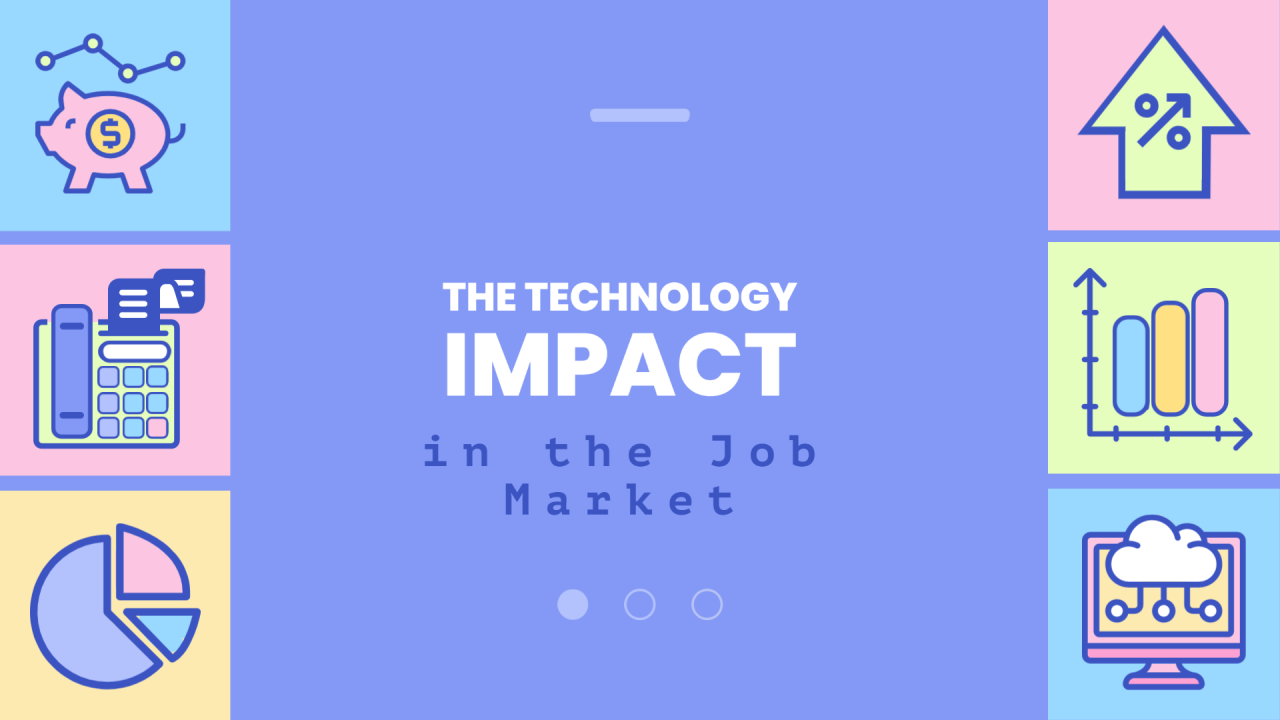
The impact of technology on finance jobs is profound, presenting both challenges and opportunities for professionals in the industry. Here’s an overview of how technology is shaping finance jobs:
Challenges:
Automation of Routine Tasks: Advanced technologies such as artificial intelligence (AI) and robotic process automation (RPA) are automating routine tasks in finance, such as data entry, reconciliation, and reporting. While this increases efficiency, it may lead to job displacement for professionals whose roles are primarily administrative or repetitive.
Skill Disruption and Reskilling Needs: The adoption of technology in finance requires professionals to acquire new skills and adapt to changing job roles. Individuals who lack digital literacy, data analytics, or programming skills may face challenges in remaining competitive in the job market and may need to undergo reskilling or upskilling to remain relevant.
Cybersecurity Risks: The increasing digitization of financial operations and the reliance on technology platforms expose finance organizations to cybersecurity threats such as data breaches, hacking, and identity theft. Finance professionals need to be vigilant in safeguarding sensitive financial information and mitigating cybersecurity risks to protect against potential losses and reputational damage.
Ethical and Regulatory Considerations: The use of AI, machine learning, and big data analytics in finance raises ethical and regulatory concerns regarding data privacy, transparency, and fairness. Finance professionals must navigate ethical dilemmas and comply with regulatory requirements governing the use of technology in finance, such as data protection laws and algorithmic transparency regulations.
Opportunities:
Enhanced Efficiency and Productivity: Technology enables finance professionals to automate manual processes, streamline workflows, and improve operational efficiency. By leveraging advanced analytics tools, cloud-based platforms, and digital solutions, finance organizations can optimize resource allocation, reduce costs, and enhance productivity.
Data-driven Decision Making: Big data analytics and business intelligence tools empower finance professionals to derive actionable insights from large volumes of financial data. By analyzing trends, patterns, and correlations in financial data, professionals can make informed decisions, identify opportunities, and mitigate risks more effectively.
Innovation and Fintech Opportunities: The rise of financial technology (fintech) presents opportunities for innovation and entrepreneurship in finance. Fintech startups are disrupting traditional finance industries, creating new business models, and developing innovative solutions such as digital payments, peer-to-peer lending, and blockchain technology.
New Job Roles and Specializations: The adoption of technology in finance creates demand for new job roles and specialized skill sets. Professionals with expertise in areas such as data science, cybersecurity, fintech, and digital transformation are in high demand and can pursue rewarding career opportunities in emerging fields within finance.
Improved Customer Experience: Technology enables finance organizations to deliver personalized, seamless, and convenient experiences to customers. Through digital channels, mobile apps, and online platforms, finance professionals can engage with customers, provide real-time insights, and offer tailored financial products and services to meet their evolving needs.
Remote Work and Flexibility: Technology facilitates remote work and flexible work arrangements, enabling finance professionals to work remotely, collaborate across geographies, and achieve work-life balance. Remote work opportunities expand access to talent, promote diversity and inclusion, and enhance employee satisfaction and retention within finance organizations.
Overall, the impact of technology on finance jobs is multifaceted, presenting both challenges and opportunities for professionals in the industry. By embracing digital transformation, acquiring new skills, and leveraging technology effectively, finance professionals can adapt to changing job roles, navigate evolving industry trends, and thrive in a technology-driven finance landscape.